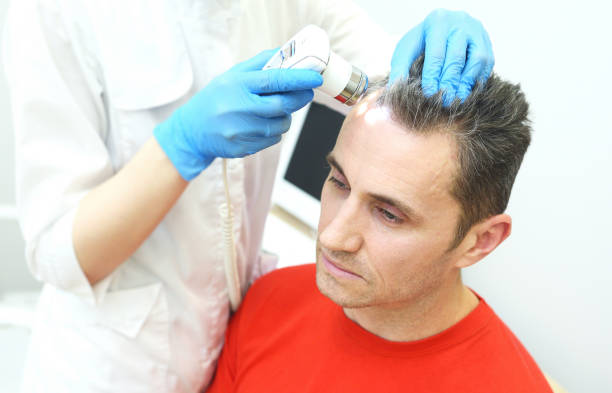Managing Eczema: Affordable and Effective Treatment Strategies
Eczema, a chronic skin condition characterized by itchy, inflamed patches of skin, affects millions of people worldwide. While managing eczema can be challenging, there are numerous affordable and effective treatment strategies available. This article explores various approaches to understanding and treating eczema, focusing on cost-effective solutions that can provide relief without breaking the bank.

What are the common triggers for eczema flare-ups?
Understanding the triggers that cause eczema flare-ups is crucial for effective management. Common triggers include environmental factors such as dry air, cold weather, and heat. Certain fabrics, particularly those made from synthetic materials, can also irritate sensitive skin. Stress, hormonal changes, and certain foods may exacerbate symptoms for some individuals. Identifying personal triggers through careful observation and possibly keeping a diary can help in developing a tailored management plan.
Which over-the-counter remedies are most effective for eczema?
Low-cost over-the-counter (OTC) remedies can be highly effective in managing eczema symptoms. Moisturizers are a cornerstone of eczema treatment, helping to restore the skin’s barrier function and reduce dryness. Look for fragrance-free, hypoallergenic options containing ingredients like ceramides or hyaluronic acid. OTC hydrocortisone creams (0.5% to 1%) can provide temporary relief from itching and inflammation. Antihistamines may also help reduce itching, particularly at night. When choosing OTC products, opt for those specifically formulated for sensitive skin to minimize the risk of further irritation.
What are some affordable home remedies for eczema relief?
Home remedies and natural approaches can complement medical treatments and offer cost-effective relief. Colloidal oatmeal baths can soothe itchy, inflamed skin. Simply add finely ground oatmeal to lukewarm bathwater and soak for 10-15 minutes. Applying cold compresses to affected areas can help reduce itching and inflammation. Virgin coconut oil, known for its antimicrobial and moisturizing properties, can be used as a natural moisturizer. Some people find relief with diluted apple cider vinegar applied topically, though it’s important to patch test first to avoid irritation.
How can dietary changes help manage eczema on a budget?
Dietary considerations can play a role in managing eczema, and making smart food choices doesn’t have to be expensive. Some studies suggest that an anti-inflammatory diet rich in omega-3 fatty acids may help reduce eczema symptoms. Incorporate affordable sources of omega-3s like canned sardines, flaxseeds, and walnuts into your diet. Probiotic-rich foods such as yogurt and kefir may also be beneficial. Conversely, some people find that certain foods trigger flare-ups. Common culprits include dairy, eggs, and gluten. Keeping a food diary can help identify potential triggers without the need for costly allergy tests.
What unique strategies can help manage eczema in the United States?
In the United States, managing eczema comes with its own set of challenges and opportunities. The country’s diverse climate zones mean that eczema sufferers may need to adjust their treatment strategies seasonally. For instance, using a humidifier in dry, cold winters can help prevent flare-ups, while opting for lightweight, breathable clothing in hot, humid summers can reduce sweating and irritation. Many U.S. pharmacies offer generic versions of popular eczema treatments, which can significantly reduce costs. Additionally, patient assistance programs provided by pharmaceutical companies can help eligible individuals access prescription medications at reduced prices or even for free.
When should you seek medical help, and what are affordable options?
While many cases of eczema can be managed at home, there are times when professional medical help is necessary. Seek medical attention if over-the-counter treatments aren’t providing relief, if the affected area becomes painful or shows signs of infection (such as oozing or extreme redness), or if eczema is significantly impacting your quality of life. For those concerned about healthcare costs, there are several affordable options to explore:
| Provider Type | Services Offered | Key Features/Benefits |
|---|---|---|
| Community Health Centers | Primary care, dermatology referrals | Sliding scale fees based on income |
| Telemedicine Platforms | Virtual dermatology consultations | Lower costs, no travel required |
| Medical Schools | Dermatology clinics | Reduced rates for treatment by supervised students/residents |
| Local Health Departments | Skin health programs, referrals | Free or low-cost services for eligible individuals |
| Non-profit Organizations | Patient assistance programs | Help accessing medications and treatments |
Prices, rates, or cost estimates mentioned in this article are based on the latest available information but may change over time. Independent research is advised before making financial decisions.
Managing eczema effectively doesn’t have to be expensive. By understanding triggers, utilizing over-the-counter and home remedies, making dietary adjustments, and knowing when to seek affordable medical help, individuals can develop a comprehensive and budget-friendly approach to eczema care. Remember that eczema management is often a process of trial and error, and what works best may vary from person to person. With patience and persistence, it’s possible to find an affordable treatment strategy that provides relief and improves quality of life.
This article is for informational purposes only and should not be considered medical advice. Please consult a qualified healthcare professional for personalized guidance and treatment.




